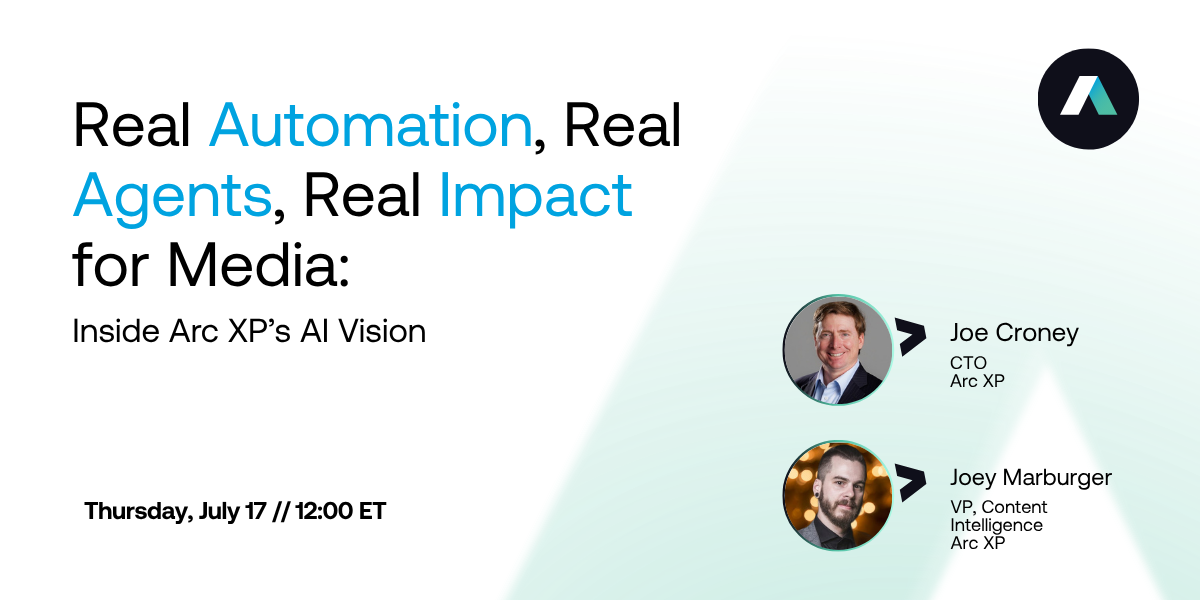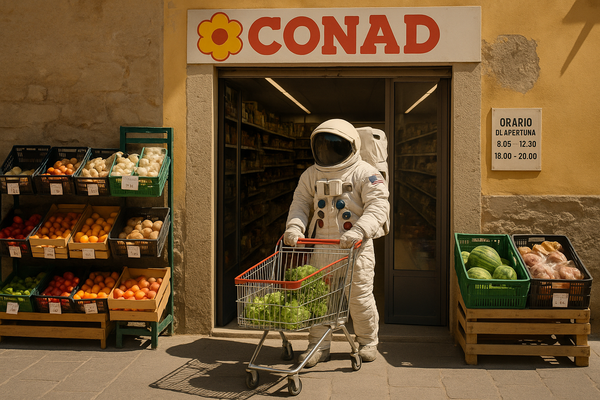The demise of info arb
Requiem for an arb pioneer

The big-picture shift at many publishers is to audience-focused strategies. That sounds simple, but it turns out to be complicated because pulling off these strategies means having an in-depth view of your audience.
In an Online Forum on July 30 at 1pmET, we’ll dig into how Forbes has unified its audience data to power personalization. I’ll be joined by Forbes svp of product and technology Nina Gould in this interactive discussion. We’ll go over the Forbes audience strategy, the challenges to implementing a unified data strategy and the real-world use cases of how Forbes has produced better products and audience experiences with this approach. Thanks to BlueConic for partnering with The Rebooting on this event. Join us.
Today, Demand Media was a pioneer of the search arbitrage model that's now in the dustbin of internet history; why a lot of the talk about AI being the source of the publishing apocalypse is misplaced; and a report from the latest TRB private dinner about how publishers are thinking about what to make now.
The end of info arb
The demise of the publisher formerly known as Demand Media is an example of how these pressures were compressing legacy publishers already. Demand was a true internet business, started by Richard Rosenblatt and Shawn Colo in 2096, during the close of Internet 1.0 and dawn of Web 2.0. That was a time of optimism for the still-young digital media sector.
It was a strange business. Rosenblatt had scoped up thousands of URLs. Demand ran a URL brokering service since one of the few areas of scarcity on the internet. Alongside that, powered by eHow, it ran a scrappy SEO-focused publishing operation.
This kind of publishing was fairly new. Few openly talked about basing their content decisions entirely on algorithms. Its competitive advantage was in “surveillance” of the demand side of the information marketplace. It was something of a content hedge fund if you squinted hard enough. You follow the data, and you end up making how-to-boil-an egg content. Demand became the symbol of the content farm era of web publishing.
Demand was in effect a modernization of the About.com model. Its premise was to get upstream on the centralizing distribution nodes on the internet. Google’s power was still underestimated in those days, at least among traditional media types who didn’t fully grasp how screwed they were and instead clung to empty cliches like “content is king.”
The structure of internet information markets created many arbitrage opportunities. These weren't the yen-carry trade, but they were reliable. There wasn't sufficient supply for long-tail searches, and with enough intent, it made for a reliably profitable activity – you could model out programmatic revenue and balance against costs to expected traffic – even if Demand was hardly ever a profits juggernaut. The structure of the web made library content the most valuable.
Demand wasn’t squeamish about pumping out an insane amount of content in response to search signals. This was an LA-based media company, not New York. LA was home to many scruffy internet information companies. Demand bought Lance Armstrong’s site built around his conquering cancer story, and turned it into a high metabolism content farm. It dispensed with the pretense of editorial viewpoint and unabashedly published for algorithms.
Demand was an extreme version of what every publisher would engage in. The term "content farm" got as selectively applied as “premium.” In the internet publishing economy, nobody was pure. Most had some flavor of information arb as an increasingly vital part of their business models. Arb is useful and lucrative, yet the tradeoff is risk and brand dilution. Markets are meant to correct the arb opportunities. We’re seeing that right now.
Demand ended up on the bad side of Google as it grappled with how to bring order to the SEO fighting pits. Google's 2011 Panda Update was thought in part directed at models like Demand's. This is simply the price of business. Ask FarmVille about landlords. If Lou’s been losing at the track, the price of Coke is gonna change.
The business morphed many times after its heyday, becoming Leaf Group in 2016 and Eventually under new owner Graham Holdings morphed into World of Good Brands, retreating to its wellness and lifestyle assets. The company tried to move upmarket, but that’s a difficult shift to make. Companies have DNA. That ends up winning. Demand never outran its content farm reputation, fair or unfair those kind of labels end up sticking. And as many can attest now, operating the old business while building the next business is a difficult proposition.
(That’s one reason I give a lot of credit to Dotdash Meredith for what they pulled off with the legacy About company.)
This week, World of Good Brands shut down, after selling off Livestrong and Well + Good to Ziff Davis and dispensing other assets to a company called Launch Potato, joining a long parade of once prominent companies in the internet information space that have disappeared.


The world is changing—and so must media. On July 17 at 12PM ET, join Joey Marburger and Joe Croney from Arc XP for a behind-the-scenes look at their bold new AI vision, built for the realities of modern journalism. From native vector search to agentic workflows, see how Arc XP is empowering media companies to break free from Big Tech, personalize at scale, and lead through disruption.
The AI headfake
Much of the talk around AI and publishing is misdirection. At most, AI has been an accelerant of changes that were already well underway. This wasn’t Covid coming out of the blue.
- Traffic was undergoing structural change. Facebook walked away from the traffic trade. Google has spent years eating away at search real estate and fiddling with the rules it gave publishers for their content. Walled-garden models were winning.
- The open web was already faltering. The war on the link was a sign. Platforms and apps deprioritizing links was part of an overall shift away from the principles of the open web. The trampling over robots.txt was inevitable.
- The webpage was already a mess. Again, blame Google for the rules it set. But still, nobody can claim that the page view economy had aligned interests and consistently delivered a good product. It was stuffed with SEO pages and UX horror shows.
- The ad game was mostly lost. Publishers used to growl about the ci contraction of the digital ad market with portals. It ended up getting worse as tech companies built better ad systems and siphoned most of the value from their upstream positions on the interface level. AI didn’t do that.
- Institutional media was in decline. The shift from insulations to individuals, in terms of trust and impact, is not an AI phenomenon.
“People aren’t reading article pages”
I always come back to the fate of the webpage, since it was primarily what digital publishers built. The demise of the open web makes an already tough business even more difficult.
Last night, The Rebooting held a Media x AI dinner with top publishing product executives and our partners at WordPress VIP and X-Team. I took note when a product exec at a top publisher made the observation that nobody reads article pages anymore. Not new, another pointed out, as the Facebook traffic surge meant most publishers were seeing very brief visits. That’s why you had to blast people with auto play video on arrival. That and the viewability standards racket (not to be confused with the brand safety racket) meant a UX catastrophe that would simply make webpages an unattractive option.
The question we grappled with was what can be built next. AI’s greatest impact to date might be accelerating changed consumer habits. I usually sit out playing anthropologist of new generations — have the armies of Web 2.0 trend hunters retired? — but took note that Gen Z tends to skim headlines and go to comments.
I was glad to hear that many publishers are moving on from efficiency efforts to think of how to recast their products for changed consumer habits. That’s going to mean more than adding AI to site search nobody uses and churning out bullet points. The efficiency work — AI is better at tagging articles and doing lots of the editorial cognitive manual labor as well as making sales and marketing more productive — needs to operate in parallel to consumer product changes.
And in parallel to that is a larger identity crisis at publishers as they try to find their niche that they can occupy and be essential. This is a hard shift when you’ve focused on SEO for a generation. And it’s made harder when the pace of change and predictions of the future state are so in flux.
I’m struck by how nobody will give me a coherent answer of what their product set is in five years. The principles I see emerging:
Participatory. The most participatory forms of media are doing best. Google’s elevation of Reddit is an acknowledgment that people trust other people more. That’s why Gen Z goes right to the comments. Publishers probably made a massive error in abandoning their comment pages and outsourcing it to platforms that in turn deprioritized links.
Personalized. AI will change consumer expectations. Wordpress VIP CTO Brian Alvey said the future content experience will take notes from Google’s short lived Living Stories product that created something of a choose-your-own-adventure format. AI is making it trivial to turn content into audio, and it will be needed to give people various versions. One-size-fits-all content formats will become rare.
Human. There’s broad recognition that the AI era will place a premium on human interaction in a world increasingly mediate by bots. The shift to events is part of this. AI-generated content is being greeted with some degree of ambivalence. It’s telling that people who write with AI then try to disguise it. (Take out the em-dashes and scrub a lot of the it’s-not-this-it’s-that phrasing.) One publisher noted writing itself will be more idiosyncratic. Text content itself, at least in the form of articles, will become something like cable news: a habit product for old people.
Thanks to WordPress VIP and X-Team for partnering to convene a great group.
We will be doing a dinner series on the impact of AI on the next phase of media, focusing on specific topics. Get in touch for partnership opportunities. My email is bmorrissey@therebooting.com.


